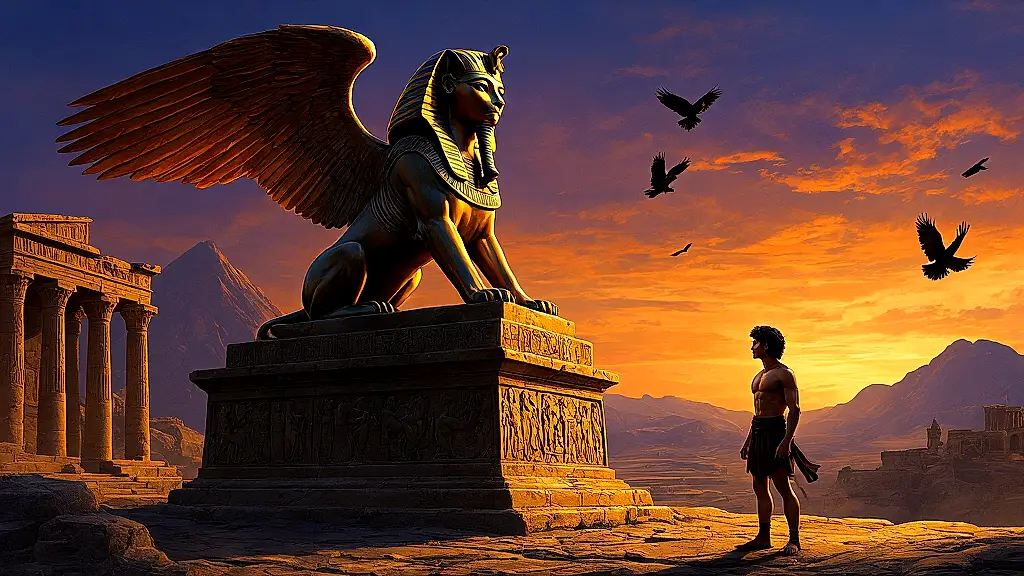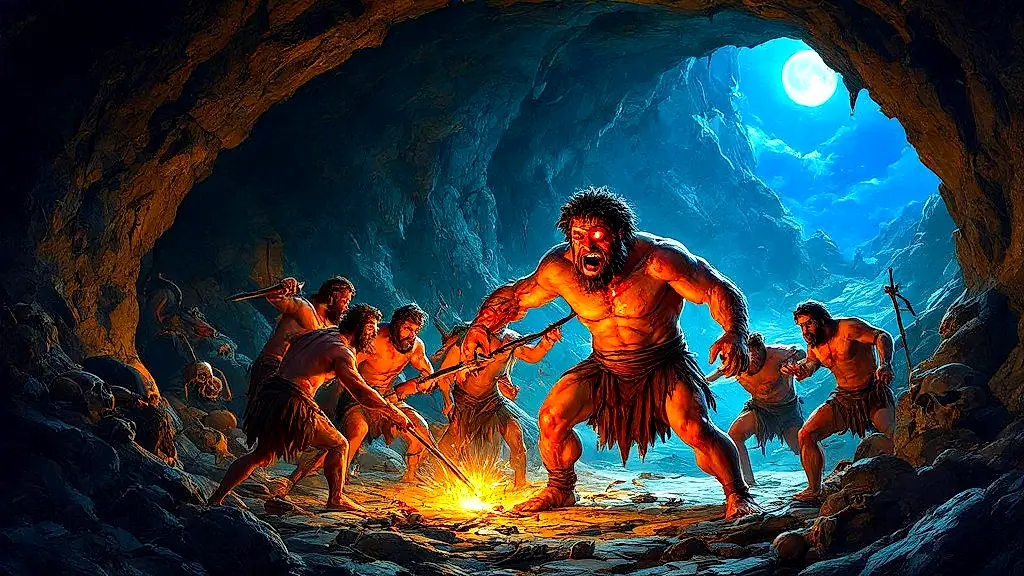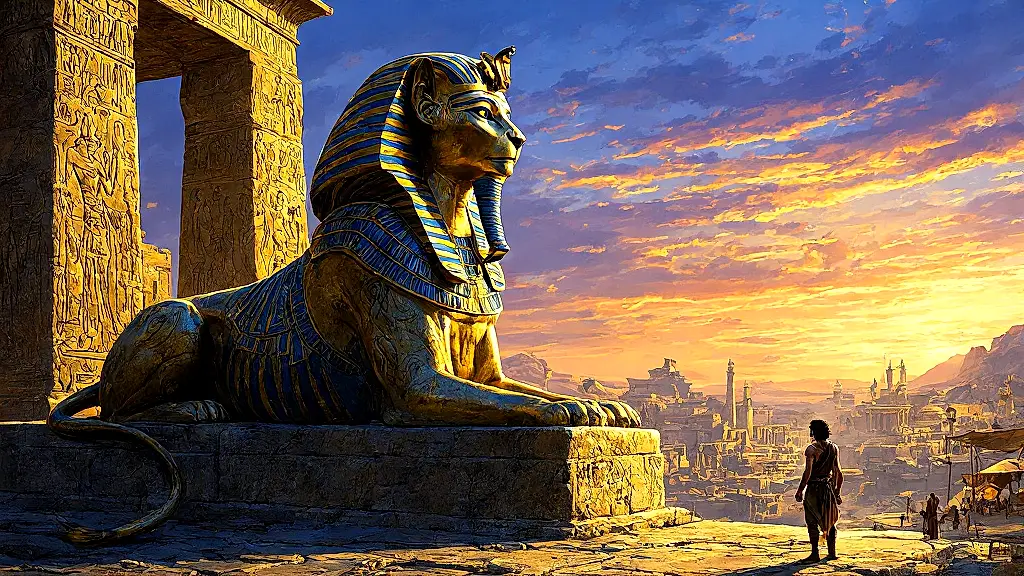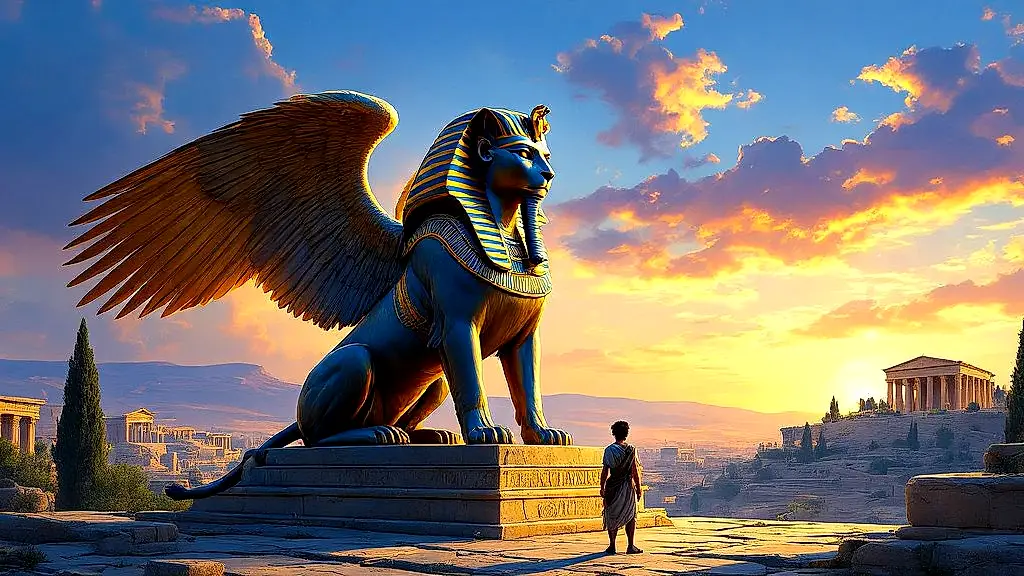Challenging Greek Mythology Riddles And Their Clever Answers
Have you ever struggled with a riddle that felt unsolvable? In ancient Greece, riddles weren’t only for fun. They were serious tests from the gods, used in myths to challenge heroes and change their lives. Picture this: a sphinx stands in your way, asking a life-or-death puzzle. Or an oracle speaks vague words that decide the future of entire kingdoms. These stories survived for thousands of years.
Key Points:
- Greek riddles were serious tests from the gods, not just games, and failing could mean death or disaster.
- The Sphinx’s riddle about a creature with changing legs was solved by Oedipus, but his victory led to his tragic fate.
- Oracles like Delphi gave unclear prophecies that often tricked people, like Croesus who destroyed his own empire.
- Odysseus tricked the Cyclops by calling himself Nobody, proving cleverness mattered more than strength in Greek myths.
- These riddles had hidden meanings about life, death, and human limits, making people think deeply.
- Animals in myths, like the Sphinx or Zeus’s eagle, stood for bigger ideas like power, wisdom, or danger.
- Greek riddles differed from others by focusing on divine tests and heroic choices, not just puzzles.
They show how riddles connected humans and gods, mixing wisdom with danger. Take Oedipus, for example. His tragic meeting with the Sphinx is famous. Odysseus also used clever words to trick the Cyclops. Greek mythology is full of puzzles that tested intelligence, uncovered secrets, and even decided the fate of empires. Here, we’ll break down the most famous riddles, explain their meanings, and explore why they still intrigue us today.
Whether you’re new to mythology or already love it, get ready to solve the puzzles that once shaped heroes and kingdoms.
Greek Mythology Riddles: Overview and Key Facts
| Key Aspect | Description | Example/Modern Analogy |
|---|---|---|
| Purpose | Riddles weren’t just games – they decided lives, uncovered destiny, or served as divine tests. Gods like Apollo and monsters like the Sphinx used them. | Think of an escape room, but if you fail, the consequences are deadly. |
| Divine Origins | Gods often created these riddles. Apollo spoke in riddles through the Oracle of Delphi, while Athena helped heroes like Odysseus outsmart enemies. | A teacher giving a tricky quiz that hides important lessons. |
| Ambiguity | Myths change over time. Different versions exist, with slight variations in details. Even prophecies, like Oedipus’s fate, were sometimes rewritten. | Like a game of telephone, where the story shifts each time it’s told. |
| Symbolism | They seem simple at first, but deeper meanings emerge when studied. The Sphinx’s riddle reflects life stages, while Cassandra’s warnings show how people ignore truth. | A painting that looks ordinary until you examine it closely. |
| Consequences | If someone failed, they faced death – or worse, unavoidable disaster. Success could bring power, like Oedipus becoming king, but also unintended ruin. | Winning a high-stakes bet, only to lose something else valuable. |
| Cultural Role | Riddles were part of learning, religion, and stories. They taught moral lessons, like how arrogance leads to downfall, while entertaining listeners. | Similar to Aesop’s fables, but with more divine intervention. |
How Riddles Shaped Ancient Greek Mythology
These puzzles weren’t just for fun. They created legendary heroes, delivered divine will, and determined outcomes in Greek myths. Here’s how they made an impact.
Testing Heroes: Riddles as Challenges of Wit and Destiny
Picture this: you’re standing before a test where the right answer makes you king, but the wrong one means death. For Greek heroes, this wasn’t imagination – it was reality. Riddles served as important tests from the gods that changed lives. The most well-known case is the Sphinx at Thebes. She gave travelers a deadly choice: answer correctly or die.
These weren’t simple puzzles, but ways for gods to measure if heroes deserved their fate through quick thinking.

Greek myths show several key events where riddles decided outcomes:
- The Sphinx’s Riddle: “What walks on four legs in the morning, two at noon, and three in the evening?” Oedipus solved this (answer: a human’s life stages), proving heroes needed brains as much as courage.
- Delphic Oracle’s Prophecies: The oracle told Croesus that crossing a river would end a great empire – his own. Leaders had to understand these tricky messages from the gods.
- Athena’s Challenges: The goddess frequently tested heroes like Odysseus with mental trials, showing that cleverness mattered just as much as strength.
Greek heroes faced life-or-death riddles from gods, like the Sphinx’s puzzle about human life stages, proving quick thinking was as vital as bravery.
Where Riddles Came From: Gods and Their Puzzles
The strongest riddles in Greek myths weren’t made by humans – they were messages from gods, designed to guide, test, or punish people. Apollo, the prophecy god, focused on these confusing statements. He gave them through oracles at Delphi in verses so unclear with multiple meanings, similar to coded messages that need special skills to understand.
Meanwhile, gods like Athena used riddles to reward smart thinking, while Zeus applied them to test people’s value, proving these puzzles mattered in how gods dealt with humans.
Important cases of gods using riddles include:
- Apollo’s Cursed Gift to Cassandra: She got perfect foresight with a terrible condition – nobody believed her real predictions, which turned her warnings into an impossible challenge.
- Prometheus’s Warnings to Zeus: The Titan often used riddles when telling Zeus about future dangers to his power, making the king of gods figure out their meaning.
- Athena’s Guidance to Odysseus: The goddess regularly helped through vague signs and word games that needed smart solutions to overcome problems.
Famous Greek Mythology Riddles and Their Tales
We’ve looked at how gods created these difficult puzzles. Now we’ll explore the most famous riddles that have lasted for centuries.
The Sphinx’s Riddle: Oedipus’s Win and Downfall
Imagine facing the Sphinx – a creature that mixed lion, bird, and woman – blocking the road to Thebes. She asked her notorious riddle: “What walks on four legs in the morning, two at noon, and three in the evening?” (as written in Oedipus Rex). This was more than a puzzle; it was a test where failure meant death. Oedipus solved it correctly.

His answer “Man” referred to babies crawling on all fours, adults walking on two legs, and elders using canes. This demonstrates what Greeks valued in cunning intelligence, yet it also hinted at Oedipus’s own terrible future.
The Sphinx’s riddle has several meanings that show Greek beliefs:
- Literal Answer: How humans move at different life stages
- Symbolic Meaning: How people gain wisdom as they age
- Dramatic Irony: Oedipus understood the general meaning but not how it applied to him
- Cultural Context: The “morning-noon-evening” format matches Greek views of life
Although most accounts agree on this version, some ancient writers like Athenaeus recorded slightly different wordings. The Sphinx killed herself when Oedipus answered right, proving that even correct answers to gods’ riddles could bring unexpected results. This moment made Oedipus a hero for freeing Thebes, but began the chain of events where he discovered he had unknowingly killed his father and married his mother.
In Greek myths, being right could still lead to disaster.
The Oracle of Delphi’s Mysterious Clues
Picture visiting Delphi’s sacred temple, where Apollo’s priestess sat on a tripod. She breathed strange-smelling fumes, then gave predictions in puzzling verses. These prophecies were never clear. When King Croesus asked about attacking Persia, the oracle said he would “destroy a great empire” (Herodotus 1.53). He thought this meant Persia, but actually lost his own kingdom.
This shows the oracle’s characteristic unclear wording, which worked like tricky contracts with unseen conditions that only made sense later.
Here are three famous Delphic prophecies and what really happened:

| Recipient | Prophecy Text | Actual Outcome | Source |
|---|---|---|---|
| Oedipus | “You will kill your father…” | Unknowingly fulfills prophecy | Sophocles |
| Croesus | “Destroy a great empire” | Destroys his own kingdom | Herodotus |
| Athenian envoys | “The wooden wall will save you” | Themistocles interprets as navy ships | Herodotus |
The oracle’s statements were unclear on purpose. Greeks believed only gods should know everything. According to Plutarch, a Delphi priest, the priestess’s words spoken in trances often needed experts to understand them. This system meant people couldn’t avoid destiny – even with warnings, the confusing prophecies often led to mistakes that caused their own ruin.
Odysseus and the Cyclops: The Nobody Trick
After Odysseus and his crew got stuck in Polyphemus’s cave (Odyssey 9.105-566), they needed to trick the giant to survive. They blinded the Cyclops with a sharpened olive stake. Then Odysseus claimed his name was “Nobody” (Outis in Greek). When Polyphemus cried for help, he could only shout “Nobody is killing me!” This word trick resembles how hackers use fake names today, showing Greeks prized brains over strength.
The plan worked until Odysseus made one error. As he sailed away, he boasted his real name, letting Polyphemus curse him to Poseidon.
Odysseus used several clever tricks to escape:
- The Name Trick: Saying “Nobody” stopped other Cyclopes from helping
- The Wine Offering: Getting the giant drunk made him careless
- The Stake Blinding: They turned an ordinary olive branch into a weapon
- The Sheep Escape: Hiding under sheep avoided detection
- The Final Taunt: Revealing his name angered Poseidon
Homer’s account remains best-known, but Roman writers like Virgil (Aeneid 3.616-691) added different details later. This story shows the Greek idea of metis (clever thinking), but also how too much pride could anger the gods. The “Nobody” trick proves words could be as useful as weapons in Greek myths.

Odysseus tricked the Cyclops by calling himself Nobody, which stopped others from helping when the giant yelled for aid.
Hidden Meanings and Symbols in Greek Riddles
These riddles weren’t just tricky puzzles. They had deeper meanings that showed important facts about life. Now we’ll examine what they really meant.
Life, Death, and Pride: What Riddles Reveal
Greek myths used riddles that acted like mirrors for the mind. They made heroes face hard facts about human limits, and by extension, made listeners think too. When the Sphinx asked about the creature with changing legs, she wasn’t just quizzing Oedipus. Her riddle showed everyone’s life path from baby to old age, and the hidden answer was “all humans.”
These puzzles worked like inkblot tests do today, where simple questions hid serious thoughts about life in a world controlled by unpredictable gods.
The main themes in these riddles show what Greeks valued most:

- Mortality: The Sphinx’s riddle points to life’s unavoidable end
- Hubris: Oedipus solving it proves how pride brings trouble
- Fate: Delphi’s prophecies show you can’t escape destiny
- Self-Deception: Odysseus’s “Nobody” trick shows words can lie
- Divine Punishment: Cassandra’s story reveals gods’ harsh jokes
Archaeology proves these tales lasted centuries because they contained basic human fears. Like therapists today use tests, Greeks used riddles to study scary topics indirectly: dying, losing control, and knowing too much. What makes these riddles special is their double nature – fun puzzles on the surface, but hiding deep questions underneath.
Animals and Their Secret Messages
In Greek myths, animals were more than creatures – they were symbols that carried godly meanings. The Sphinx had a lion’s body that stood for royal power and danger, while her human head showed intelligence. This combination clearly showed the life-or-death test she represented. In the same way, owls weren’t just birds but represented Athena’s wisdom, similar to how schools today use owls as knowledge symbols.
Furthermore, these mixed creatures helped gods communicate complex ideas through simple representations that even non-readers could understand.
Here are key mythological animals and their hidden meanings:
- Sphinx (lion body): Unstoppable nature and royal power
- Cerberus (three-headed dog): The three dangers that guarded the underworld (past, present, future)
- Eagle of Zeus: Absolute power and all-knowing nature
- Serpent of Asclepius: Healing and renewal through shedding skin
- Crow/Apollo’s bird: Once white, turned black as punishment which showed godly displeasure
Archaeology shows these symbols appeared consistently in Greek art for over 800 years. An animal’s looks often matched its meaning – Cerberus’s three heads resembled how death comes unexpectedly, while the eagle’s flight matched Zeus’s rule over the sky.
This symbolic system worked so well that we still use many of these animal meanings today, demonstrating the lasting impact of Greece’s mythical creatures.
Greek vs. Norse Mythology: How Their Riddles Stack Up
After looking at Greek riddles, let’s compare them to Norse ones. Both cultures used thought puzzles to test heroes and uncover truths. But their methods show different ways of thinking that reveal each culture’s unique beliefs.
How to Write Greek-Style Riddles
Since we’ve seen how Greek riddles work, you can learn to create your own with these proven approaches. The guidelines that follow will show you how to construct riddles that match the ancient style. These methods have lasted for good reason, and they can help you write truly authentic puzzles.
What Makes a Mythological Riddle Work
The best Greek mythological riddles have certain features that made them more than word games. They carefully combined obvious cleverness with hidden meanings. The Sphinx’s riddle about the three-legged creature appears simple at first. But it actually describes every person’s life from baby to old age. What made them effective was how they worked on several levels at once. They tested logical thinking, taught moral lessons about human weakness, and moved stories forward.
Researchers today note similarities to psychological tests where answers reveal the solver’s mindset.

Key components of effective mythological riddles include:
- Dual Meanings: Words have both obvious and hidden significance (“legs” means both limbs and life phases)
- Divine Connection: Links to gods or destiny (Apollo gave riddles at Delphi)
- Universal Themes: Deal with basic human experiences (life, death, love)
- Dangerous Stakes: Wrong answers bring punishment (death by Sphinx, failed voyages)
- Elegant Simplicity: Clear surface that hides deeper meaning (Odysseus’s “Nobody” trick)
Archaeology shows these patterns stayed the same for centuries. The riddles succeeded because they packaged big questions into memorable forms, similar to how modern formats simplify complex ideas. Whether written on temples or told at parties, these puzzles followed writing techniques that balanced fun, learning, and deep understanding.
Try These Riddles Yourself
Since you understand Greek riddles now, here are some to try. These authentic riddles follow classic Greek puzzle structures. Each one has obvious clues that reveal a hidden meaning. They come from the same tradition that challenged heroes like Oedipus. If you find them hard, remember that even Odysseus had trouble with some challenges.
Here are three authentic-style Greek riddles to solve:
- “I speak without a mouth, guide without hands, yet kings and beggars alike follow my path. What am I?”
- “Born from fire but bound in chains, I give what gods tried to withhold. My theft brought light but endless pain. Who am I?”
- “Three sisters share one eye, seeing past, present and future alike. Weavers of fate who even Zeus must obey. Who are we?”
FAQs
1. What is the most famous Greek riddle?
The most famous Greek riddle is the Sphinx’s question to Oedipus: “What walks on four legs in the morning, two at noon, and three in the evening?”
2. How were riddles used in Greek society?
Riddles in Greek society were used to test wisdom, convey divine prophecies, and resolve moral or political dilemmas.
3. Are there lesser-known Greek riddle myths?
Lesser-known Greek riddle myths include the prophecy of Achilles‘ fate and the riddle of the Golden Apple.
4. How do Greek riddles differ from Egyptian?
Greek riddles differ from Egyptian in their emphasis on divine punishment and heroic trials, whereas Egyptian riddles often focus on afterlife wisdom and cosmic balance.







